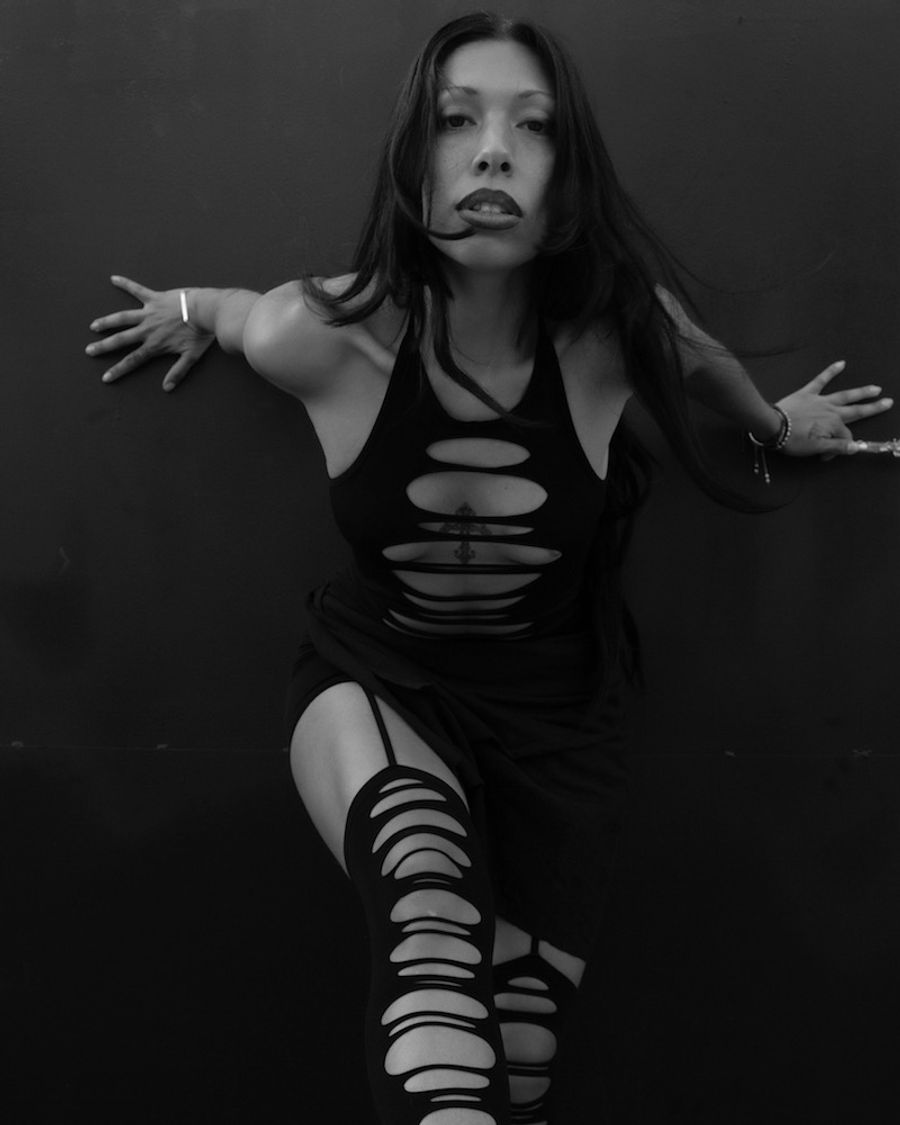Self-taught as a producer, US-based artist Mia Carucci’s recently released their debut EP As Above So Below. The EP explores and pays homage to the sounds rooted in Afro-Indigenous traditions from Latin America and the Caribbean synthesised through their cultural and sonic influences of experimental dance music, trip-hop, and jazz. As Above So Below is a collection of tracks that pushes the boundaries of experimental music by creating a world reflective of Mia’s own experience and deep inspiration from the spiritual world. Written and produced during the height of the pandemic of 2020, they take us through their dreams and astral projections, as we explore their world through field recordings used in multiple tracks. In giving insight into their life, Mia ended up cultivating a world of their own.
KALTBLUT caught up with Mia to discuss their political engagement, Pomba Gira and their diverse range of influences. Read the q&a below.
KALTBLUT: You’re highly engaged politically and spiritually with the societal changes in America in the last couple of years. How does that translate into your music?
Mia: I feel, as a brown person with some semblance of influence in this world, it’s important for me to be political and unapologetic about it. The track trail of tears on my EP is my response to mass incarceration, ICE detention centres and all displacement or imprisonment of all peoples of colour.
KALTBLUT: “Pomba Gira”, which is what you named one of the singles from your EP is the “spirit of the people of the street, sex workers, marginalised, transgender women and those forced to live by their wits”. Can you tell me a little bit about that?
Mia: I feel most organised religion has a way of keeping their followers in fear of their powers. Pomba Gira is an advocate and pillar of self-empowerment and individuality. It’s important to know that there are belief systems, practices and deities for everyone, to help you find your peace, and possibly disrupt others in the process.
KALTBLUT: The video to “Pomba Gira” is stunning, can you tell me a little bit of how it connects to the song?
Mia: Thank you. I channelled her in every step of the process. My dear friend Star Amarasu is the complete embodiment of Pomba Gira’s spirit and her physical incarnation. With her blessing she allowed us to represent her and I feel so blessed to have been able to do so.
KALTBLUT: There are elements of various genres on your EP. Can you break down your influences for me?
Mia: Rivers, oceans, baby ultrasounds, birds, samba, Candomble music, bomba, house, techno, jazz, John Cage, Brian Eno, Cocteau Twins, Beth Gibbons, Massive Attack, Connie Francis, Bjork, Brandy, Ennio Morricone, Angelo Badalamenti.
I don’t know that I was hoping to achieve anything other than my catharsis or release of anger and frustration.
KALTBLUT: Your track “Trail of Tears” reflects your feelings on migration and immigration in the US, as well as the horrible treatment of Native Americans in the US. How do you approach such a heavy song and what are you hoping to achieve?
Mia: I don’t know that I was hoping to achieve anything other than my catharsis or release of anger and frustration. It would be sick if someone heard it and felt like they could release their anger too, and someone on the flip side would experience a feeling of guilt and confront those feelings as a result.
KALTBLUT: As we’ve both already mentioned, your music is political. The music industry is, albeit very slowly, catching up now. What kinda changes have you seen in the music industry/ scene throughout the last two years?
Mia: Mmmm, not enough changes. Or many that I find, to be honest. I’m still quite bored and unmoved.

Stream Mia’s EP As Above So Below here.
Cover photo by @miwahlee
Mia’s socials:
Instagram: @miacarucci
Twitter: @MiaCarucci

